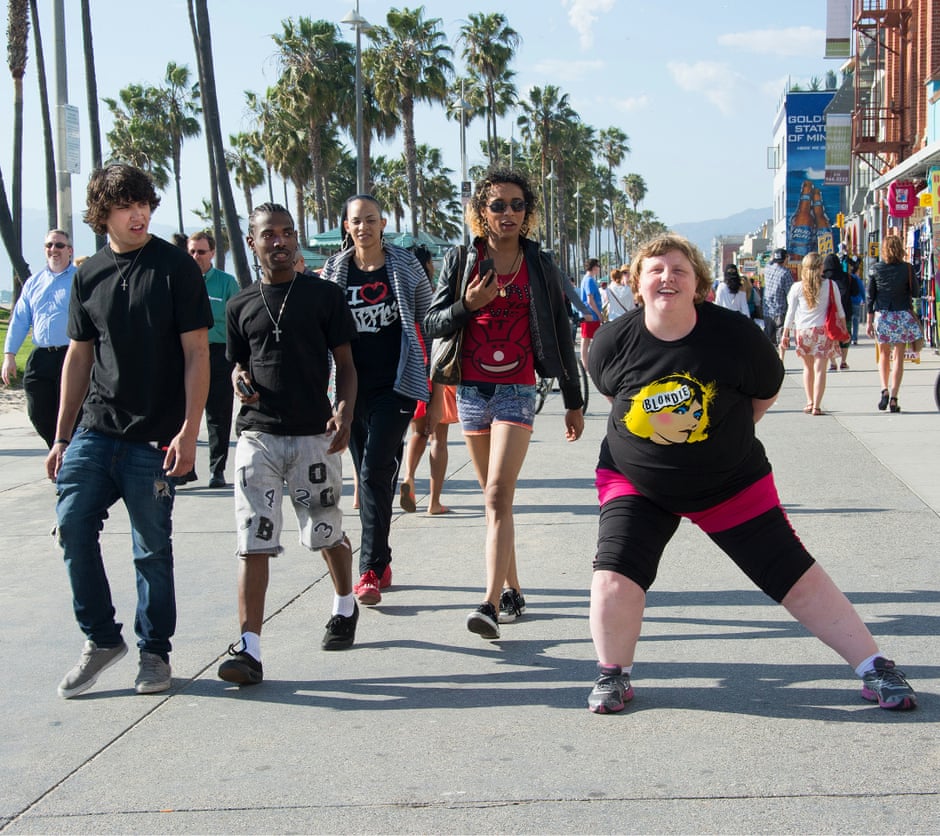How abuse “fuelled me” – Haley tells The Guardian her photo backstory
Date 30.09.2021
30.09.2021
Getting revenge on her online trolls was a key driver behind a series of stunning photos created by a University of Northampton lecturer.
Haley Morris-Cafiero’s Wait Watchers photographic series went viral in 2013, as people were drawn to her guerrilla-style self-portraits. The shots were taken in public places, and would capture the moment strangers would turn their gaze her way.
Her favourite shot, above, was taken on Venice Beach in Los Angeles and captures passers by looking at her as she limbers up next to the world-famous workout area known as Muscle Beach.
While while many internet users were blown away by the images, the Photography lecturer also became a target for nasty comments about her appearance.
Eight years on, and with a new exhibition running in Luton, Haley spoke to The Guardian about the motivation behind Wait Watchers, and her subsequent work.
She told the newspaper: “I first published the series, Wait Watchers, in a photography blog in 2013, and it went viral. I was really surprised – I made it for the gallery not the internet. I started to get messages from people criticising my body. I also got notifications about sites I had never heard of, 4chan and Reddit and all these places that are common now, where people were being celebrated for making hateful comments about me.
“Someone would say something horrible then a bunch of other people would be like: “Woo! Go man!” They wanted either fame for themselves or to intimidate me into stopping taking photographs, but getting so much abuse just fuelled me. It’s still socially acceptable to comment on a woman’s body in a way you wouldn’t comment on a man, even if it’s a compliment. There’s an expectation for women to be visually attractive and, in that way, we are not fully in control of our bodies. The norms are changing, but we still have a long way to go. People with those negative feelings are even more extreme now.”
You can read the full interview on The Guardian website.